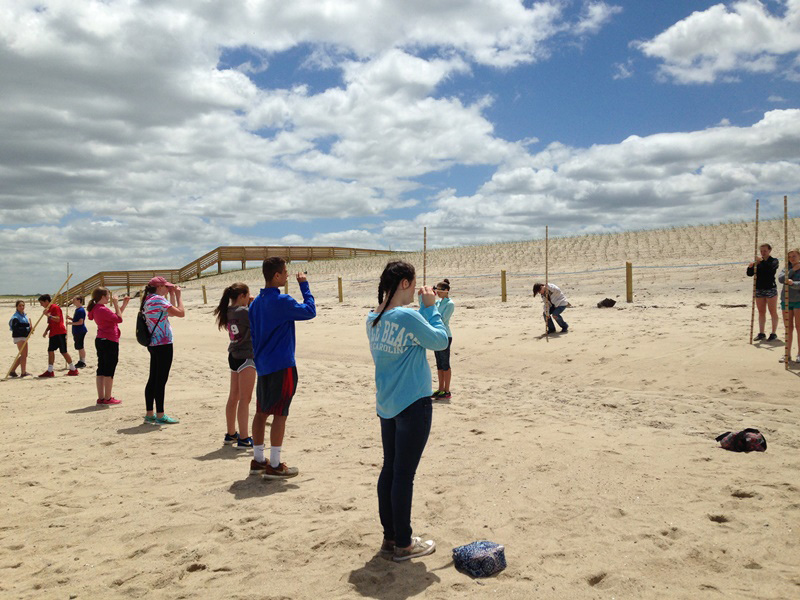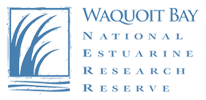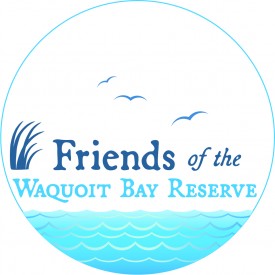K-12 School Programs

School Programs
The primary intent of Waquoit Bay Reserve school programs is to increase the students’ understanding of estuarine systems, factors that influence them, and the students’ roles as coastal stewards. Many of the programs relate directly to the on-going research at the Reserve. The hands-on, inquiry-based programs highlight topics such as climate change, coastal processes, watersheds, eutrophication, and estuarine ecology for elementary through college students. Programs are presented in the classroom, at sites around the Reserve, and off site at field locations. We are happy to work with teachers to customize programs for their needs. All the programs are free. Contact our School and Interpretive Programs Coordinator Jayne DiCandio, Jayne.Dicandio@mass.gov to schedule.
Ongoing programs include:
Wampanoag Tribe: WBNERR often works with Wampanoag Cultural Educators to combine traditional ecological knowledge and cultural awareness with estuary programming. We have a wety8 and muhsh8n on site. This combined programming is dependent upon scheduling and funding but please inquire if interested.
Elementary School Programs
Salt Marsh and Estuary Habitats: We will look at the many factors that make this a special habitat. Using nets, we will collect some wildlife and focus on observations, life cycles, food webs, and adaptations.
Osprey: These fish-eating hawks nest at Waquoit Bay. Through hands-on activities, we will look at their life cycle, adaptations, and migration. Watch them with our scope and on our Osprey Cam. Classes can continue their observations in class with follow up activities involving the live web cam.
Oysters: Oysters are a very beneficial species for our bays due to their ability to filter excess nutrients in the form of phytoplankton. We will test the water for the right conditions for oysters, measure the growth of some of our oysters, and learn about aquaculture at Waquoit Bay, as well as oyster life cycles and adaptations.
Anadromous Fish: Cape Cod has several fish whose life cycles depend upon the ocean, estuaries, rivers, and ponds. We will look at what is being done to protect and restore their habitats. We will use problem-solving activities to look for answers to their challenges and learn about their life cycles and adaptations.
Other programs involving life cycles and adaptations can be designed around other species including Horseshoe Crabs and Piping Plovers.
MA Science Curriculum Frameworks: Gr. 2: Ecosystems LS2-3, Biological Evolution LS4-1 Gr. 3: Molecules to Organisms LS1-1, Heredity LS3-2, Biological Evolution LS4-2, LS4-3, LS4-4 Gr. 4 From Molecules to Organisms LS1-1 Gr. 5: Ecosystems 5-LS2-1, Gr. 6: Life Science MS-LS1-3
Erosion and Geology of Cape Cod: What is erosion? What causes it and why is Cape Cod particularly vulnerable? We will look at coastline erosion and replicate the effects of wind and water on our own erosion model.
Connecting through water: Watersheds: We are connected through water. Using models, the students can see the connection from pollution upstream to the ocean. Students will problem solve ways to protect our bay.
MA Science Curriculum Frameworks: Gr. 2: Earth’s Systems ESS2-1; Gr. 3: Earth and Human Activity ESS3-1 Gr. 4: Earth’s Systems ESS2-1, Earth and Human Activity ESS3-1, ESS3-2
Middle and High School
Estuary Discovery: What are the many benefits of an estuary to people and wildlife? We will study the estuary and the abiotic and biotic factors that affect the ecosystem. Using nets, we will take a closer look at several of the animals and discuss their life cycles and adaptations.
Estuary Research: We will visit research sites at Waquoit Bay and learn about the on-going research relating to climate change, sea level rise, and water quality in our estuarine environment. Using various instruments, we will collect some data and compare it to our research.
Water Quality: Water quality is a constant concern for our watersheds on Cape Cod. We will examine the issues and possible solutions and take some water quality measurements on the edges of Waquoit Bay.
Salt Marsh Plants: The marsh grasses provide habitat, hold together soil, and protect us from flooding. How is climate change effecting these plants? We will use a quadrat, identify what’s there and compare it to the research being done at Waquoit Bay.
Sea Level Rise: How will sea level rise affect the estuary? We will take measurements of projected sea levels and look at research data that is being conducted at the estuary. Together we will evaluate with some scenarios and solutions.
Blue Carbon: Salt Marshes are an important ecosystem for the storage of carbon. Waquoit Bay researchers have figured out a way to measure how much carbon is being stored. Using instruments on the marsh, we will collect some data to estimate the amount of carbon being stored there to provoke a discussion on carbon storage and climate change.
MA Science Curriculum Frameworks: Gr. 7: From Molecules to Organisms MS-LS1-4, Ecosystems MS-LS2-1 through 6. HS: Earth & Human Activity HS-ESS3-1, Ecosystems HS-LS2-1 through 7.



